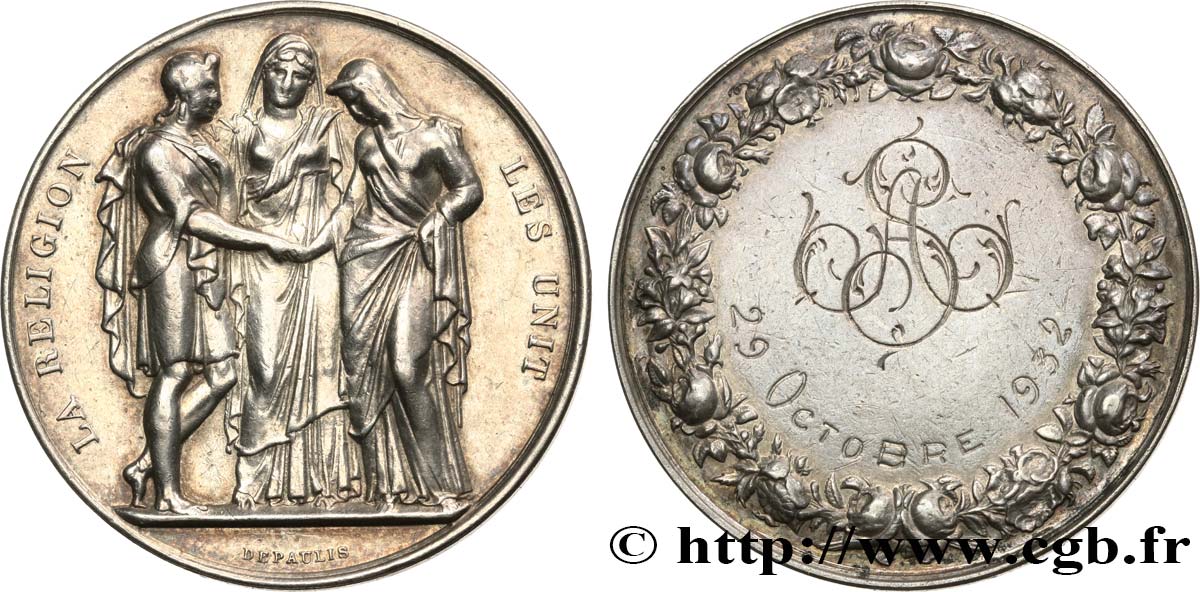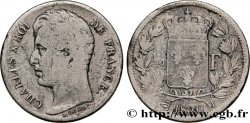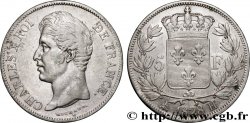fme_609617 - CHARLES X Médaille de mariage, La Religion les unit
Not available.
Item sold on our e-shop (2021)
Price : 30.00 €
Item sold on our e-shop (2021)
Price : 30.00 €
Type : Médaille de mariage, La Religion les unit
Date: 1932
Metal : silver
Diameter : 36 mm
Orientation dies : 12 h.
Engraver Depaulis
Weight : 21,37 g.
Edge : lisse
Puncheon : sans poinçon
Coments on the condition:
Patine grise hétérogène. De l’usure sur les hauts reliefs, en particulier à l’avers
Catalogue references :
Obverse
Obverse legend : LA RELIGION. - LES UNIT..
Obverse description : Couple debout, pieds nus, vêtu à l’antique, époux à gauche, épouse à droite se tenant la main droite devant la Religion qui les unit de ses bras.
A l’exergue signature : DEPAULIS.
Reverse
Reverse legend : AS / 29 OCTOBRE 1932.
Reverse description : Initiales gravées et légende d’une ligne dans une couronne de roses.
Commentary
Médaille non signée, mentionnant le nom des époux et la date du mariage ; Eugène Demonteville et Cécile Cannet, le 26 septembre 1857.
Unsigned medal, mentioning the names of the spouses and the date of the marriage; Eugène Demonteville and Cécile Cannet, September 26, 1857
Unsigned medal, mentioning the names of the spouses and the date of the marriage; Eugène Demonteville and Cécile Cannet, September 26, 1857








 Report a mistake
Report a mistake Print the page
Print the page Share my selection
Share my selection Ask a question
Ask a question Consign / sell
Consign / sell
 Full data
Full data















